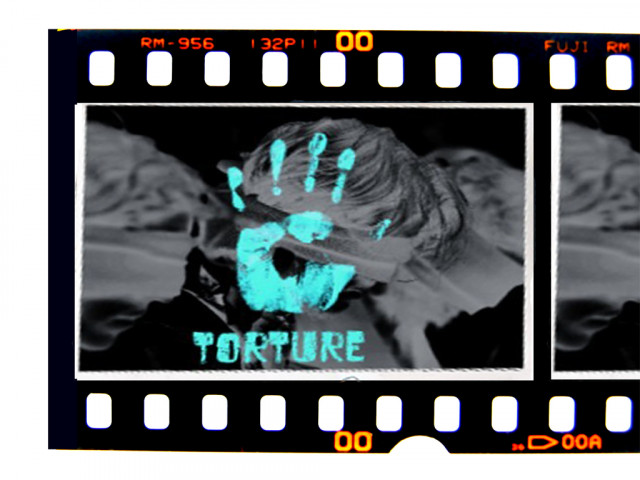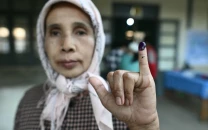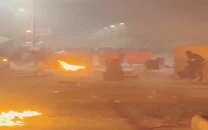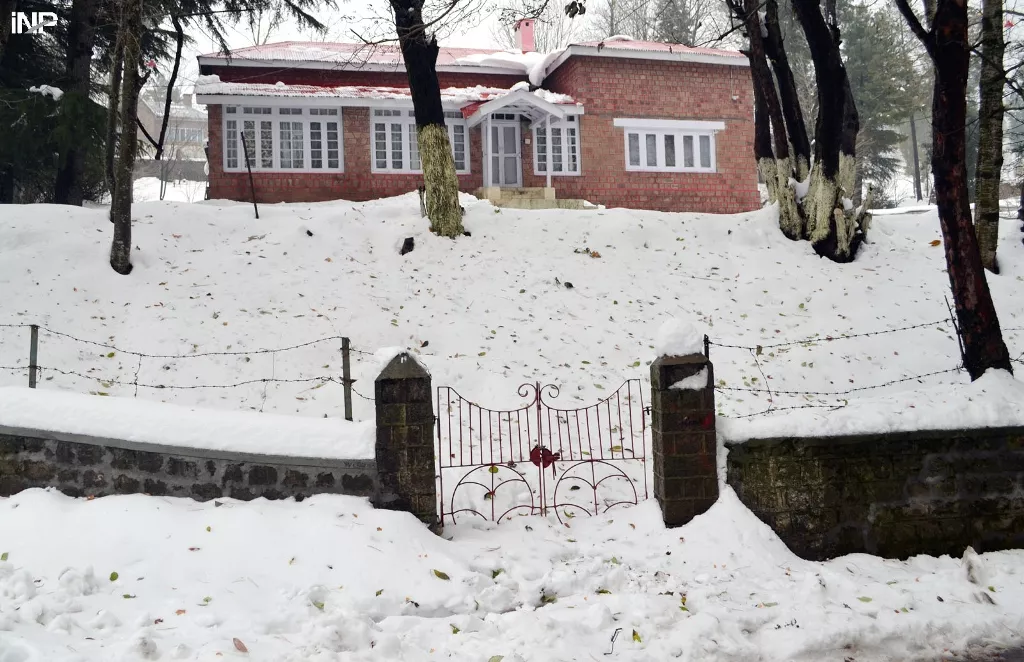Ex-CIA official says tapes destroyed to prevent al Qaeda reprisals
Interrogations tapes at CIA "black site" had images of waterboarding on three al Qaeda leaders now in Guantanamo.

But the former director of the CIA's National Clandestine Service told Reuters on Monday that he ordered the tapes destroyed to protect his colleagues from possible retaliation by al Qaeda.
The tapes of interrogations at a CIA "black site" included images of waterboarding - a form of simulated drowning - on Mohammed, Abd al Rahim al Nashiri and Abu Zubaydah, three al Qaeda leaders now held at the US prison in Guantanamo Bay.
Rodriguez said he was afraid the material would be leaked. "You really doubt that those tapes would not be out in the open now, that they would not be on YouTube?" he said.
"They would be out there, they would have been leaked, or somebody would have ordered their release."
After the tapes were destroyed in an "industrial-sized disintegrator," he said, "I felt good."
Rodriguez recounted his actions in a telephone interview about his just-released book "Hard Measures," which deals with the CIA's controversial use of "enhanced interrogation techniques" against suspected terrorists after the September 11, 2001 attacks.
In the book, Rodriguez, who retired from the CIA in 2007 after 31 years, said destroying the tapes got rid of "some ugly visuals that could put the lives of my people at risk."
The CIA reprimanded him in December 2011 in connection with the destruction of the tapes in November 2005. The CIA used the enhanced interrogation techniques on high-level detainees at "black sites" or secret prisons outside US.
Critics, including some in Congress, say the tactics amounted to torture on captured senior al Qaeda members and elicited little information.
But Rodriguez contends that the tactics were key to loosening the grip of al Qaeda and eventually, to finding and killing Osama bin Laden.
The controversy over the tactics continues on the eve of the one-year anniversary of the bin Laden killing.
The Obama administration has made clear that it did not condone the use of enhanced interrogation techniques, which were used under the George W. Bush administration.
In a speech on Monday, John Brennan, counterterrorism adviser to President Barack Obama and a former CIA official recalled that Obama in his first days in office "banned the use of enhanced interrogation techniques, which are not needed to keep our country safe."
Senate Intelligence Committee Chairman Dianne Feinstein and Senate Armed Services Committee Chairman Carl Levin, both Democrats, have called Rodriguez's account of the tape destruction troubling.
In a joint statement, they called "inaccurate" his assertion that harsh interrogation yielded information that contributed to the killing of bin Laden in Pakistan.
The Senate intelligence committee will soon complete its review of the CIA's former interrogation program. The final report is expected to exceed 5,000 pages and will detail what was or wasn't gained from the program, they said.
CORRECTING THE RECORD
But Rodriguez said he regards the Senate's work as "highly partisan." "I just do not understand how anyone who really understands the record can say that," he said, referring to criticism that harsh interrogation did not work.
"I just don't understand that because this was the key to allowing us to understand how al Qaeda operated and to taking down the organization."
Feinstein and Levin said the CIA discovered bin Laden's whereabouts in Abbottabad, Pakistan, in other ways. US intelligence sources have said bin Laden was tracked through a trusted courier that he used in Pakistan.
"The CIA learned of the existence of the courier, his true name and location through means unrelated to the CIA detention and interrogation program," the senators said.
Rodriguez said the interrogation of Mohammed yielded results, even if he never gave up bin Laden's location.
"The enhanced interrogation techniques only lasted three weeks or so and then after that he became compliant," he said.
"And from there he continued to provide intelligence for years." Rodriguez said he wrote the book to correct misinformation about the interrogation program.
"It took 10 years to find bin Laden, in the meantime we destroyed the al Qaeda organization that attacked us and collected slowly information on bin Laden," Rodriguez said.
But Ali Soufan, a former FBI agent who was involved in high-profile terrorism investigations, said in an interview that "not one single piece of intelligence evidence came from EITs or torture that led to Osama bin Laden."
He questioned whether Rodriguez acted properly in destroying the tapes which were evidence of how the interrogations were conducted. "If I did that in the FBI, I would be in jail today," Soufan said.



















COMMENTS
Comments are moderated and generally will be posted if they are on-topic and not abusive.
For more information, please see our Comments FAQ